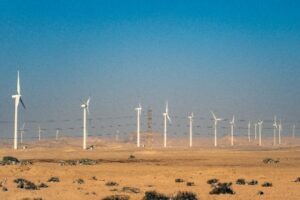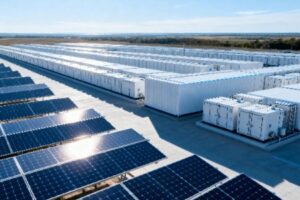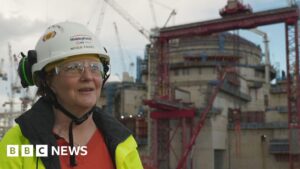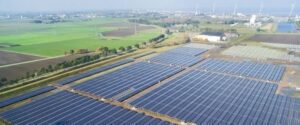REC Silicon delays restarting Moses Lake polysilicon plant
REC Silicon’s Moses Lake, Washington facility (Courtesy: REC Silicon)
REC Silicon reports it is progressing the ramp-up operations for the restart of its Moses Lake polysilicon plant, but announced a delay in the expected timeframe for its first shipment.
The company previously targeted the end of Q1 2024, but “minor delays in the completion of the new postproduction treatment, packaging, and handling lines” caused the company to reevaluate that timeframe, with the first shipment now expected by the end of Q2 2024. However, REC Silicon says it still expects to ramp up to full production capacity by the end of the year.
Last September, REC Silicon announced it was entering into a full-form supply agreement between its subsidiary REC Solar Grade Silicon LLC and Hanwha Q Cells Georgia, Inc., a wholly owned subsidiary of Hanwha Solutions for a 10-year take-or-pay supply agreement for high-purity FBR granular polysilicon produced from REC Silicon’s facility at Moses Lake, Washington.
GO DEEPER: Check out the Factor This! manufacturing playlist, including episodes on the U.S. solar manufacturing boom, thin-film manufacturing, and more. Subscribe wherever you get your podcasts.
The United States has a polysilicon problem – following the implementation of tariffs prohibiting the importation of polysilicon produced via Chinese forced labor, the country has struggled to fill the gap. The Xinjiang region, the focus of the Uyghur Forced Labor Protection Act (UFLPA), produced nearly half the global polysilicon output in 2021, according to the Department of Labor.
Some non-Xinjiang Chinese polysilicon has recently been making its way through customs. This could eventually cause solar module prices to fall, which Wood Mackenzie says would likely require U.S. manufacturers who domestically source their polysilicon to market themselves as the “most reliable rather than the lowest-cost suppliers.”
Last month, REC Silicon announced that its subsidiary REC Advanced Silicon Materials is shutting down its polysilicon production capacity at its Butte, Montana facility. REC Silicon says the shutdown was primarily necessary due to the “regional structural imbalance in supply and demand” for electricity, and was part of REC Silicon’s strategy to ensure long-term profitable operations. Discontinuing the polysilicon production at Butte will significantly reduce its annual energy consumption and operating costs, the company said.




